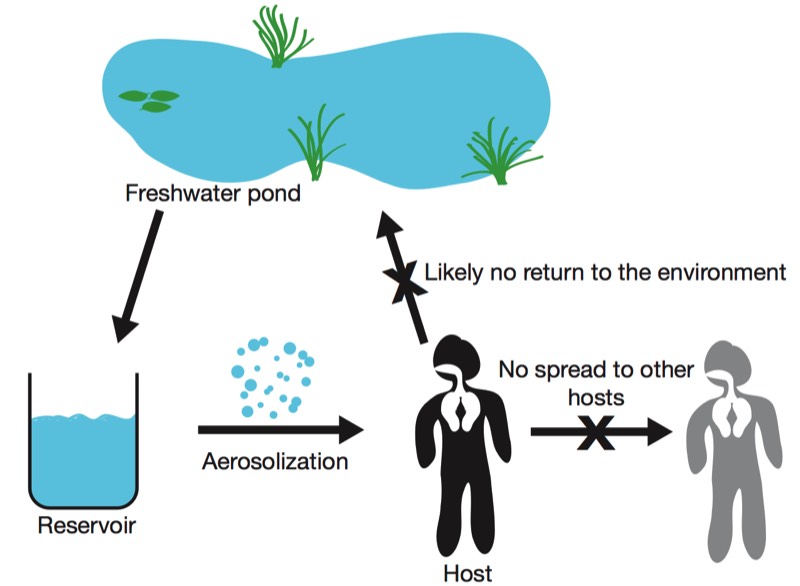GENOMIC DISSECTION OF OUTBREAKS OF HUMAN DISEASE:
Using Illumina whole-genome sequencing, we study clinical strains collected during outbreaks of disease. Using information gained through our experimental evolution studies, we have begun to identify "host signatures" placed upon individual bacterial genomes through their evolutionary histories during outbreaks. These host signatures act like entry stamps on Legionella's passport, allowing us to track the environmental path that the pathogen takes on the way to the human lung.
Using Illumina whole-genome sequencing, we study clinical strains collected during outbreaks of disease. Using information gained through our experimental evolution studies, we have begun to identify "host signatures" placed upon individual bacterial genomes through their evolutionary histories during outbreaks. These host signatures act like entry stamps on Legionella's passport, allowing us to track the environmental path that the pathogen takes on the way to the human lung.

For examples of our genomics research, see:
Khan et al (2013). Comparative Genomics Reveal That Host-Innate Immune Responses Influence the Clinical Prevalence of Legionella pneumophila Serogroups. PLoS One 8(6): e67298.
Rao C, Benhabib H, Ensminger AW (2013). Phylogenetic reconstruction of the Legionella pneumophila Philadelphia-1 laboratory strains through comparative genomics. PLoS One 8(5): e64129.
Khan et al (2013). Comparative Genomics Reveal That Host-Innate Immune Responses Influence the Clinical Prevalence of Legionella pneumophila Serogroups. PLoS One 8(6): e67298.
Rao C, Benhabib H, Ensminger AW (2013). Phylogenetic reconstruction of the Legionella pneumophila Philadelphia-1 laboratory strains through comparative genomics. PLoS One 8(5): e64129.